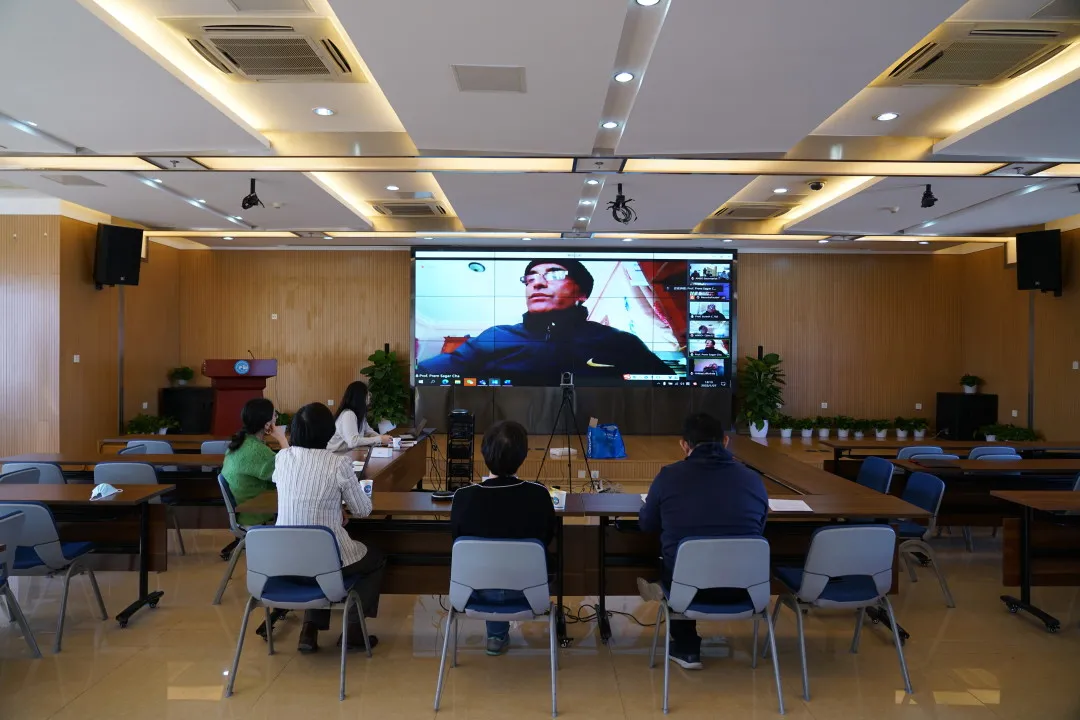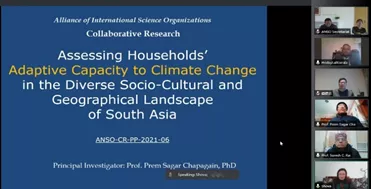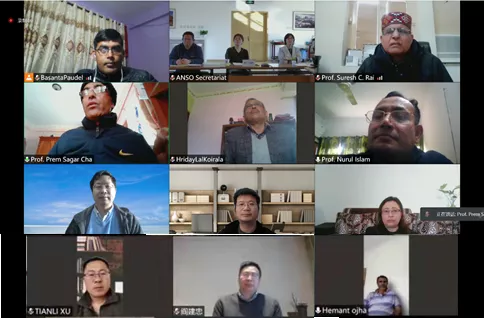The kick-off meeting of the ANSO collaborative research project entitled “Assessing Households’ Adaptive Capacity to Climate Change in the Diverse Socio-Cultural and Geographical Landscape of South Asia” (Project No.: ANSO-CR-PP-2021-06) was held virtually on 27 January 2022. This project is jointly carried out by research groups from six universities and institutes from Nepal, China, Bangladesh, India and Australia, and the Principal Investigator is Prof. Prem S. Chapagain from the Central Department of Geography, Tribhuvan University (TU), Nepal. 16 participants from project team, ANSO Secretariat and Kathmandu Center for Research and Education, Chinese Academy of Sciences (CAS) attended the meeting.

This project works on climate change impact on rural livelihood of mountain regions in south Asia. Taking case studies from upper, middle and lower part of the Ganga (including Gandaki basin)-Brahmaputra Basin in Nepal, India, and Bangladesh, the study further focuses on differential impacts of climate change and the adaptive capacity of rural households in the existing diverse bio-physical, socio-economic and cultural context of the Himalayas.
Prof. Prem S. Chapagain started the meeting with introduction of the collaborators and presented the proposal with the activities and work plan. The collaborators further discussed on study site selection, climatic data collection and literature review, the formation of the project coordination committee (PCC) and discussed other logistic aspects of the project.


The meeting ended with suggestions and comments from the participants. Prof. Ailikun from ANSO Secretariat provided fruitful suggestions to focus on commonalities and differences across and within three study sites and integrate natural science processes with social system in CC adaptation context. Prof. Hriday Lal Koirala, Head of the Central Department of Geography, TU addressed and assured his cooperation to the successful implementing of the project. Prof. Zhang Yili from Institute of Geographic Sciences and Natural Resources Research, CAS and Dr. Hemant Ojha from University of Canberra pointed out the importance of collaborative research that brings insights from multi-case synthesis from the region which will be important in understanding various impacts, adaption strategies, capacities that will be valuable in combating climate change. Prof. S C Rai from Department of Geography, University of Delhi (India) and Prof. Nurul Islam from Department of Geography & Environment, Jahangirnagar University (Bangladesh) also expressed their commitment in completing the project.
Source: Prof. Prem S. Chapagain, Tribhuvan University, Nepal



